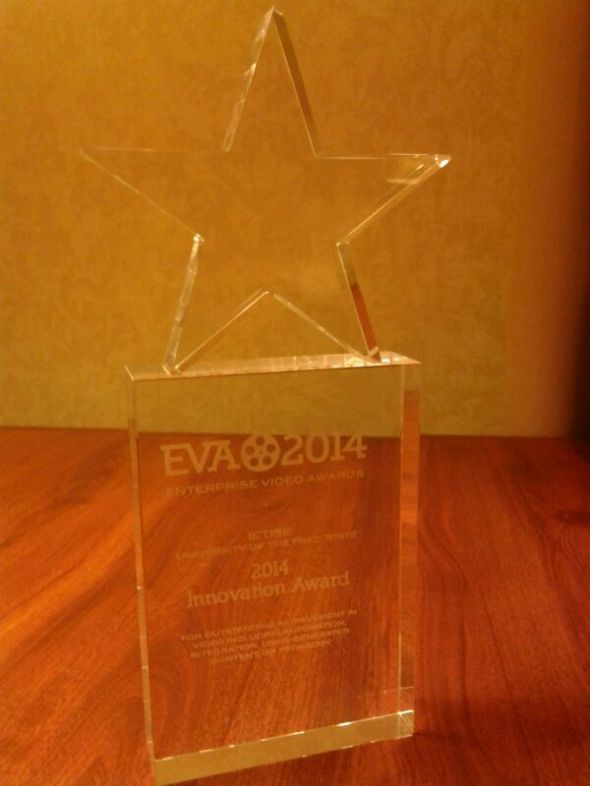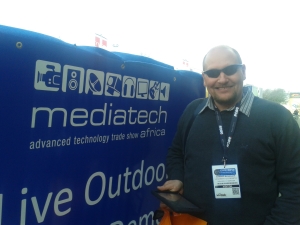The Enterprise Video Awards (EVA) named Kovsies’ Internet Broadcast Project (IBP) the winner of the Innovation in Pedagogy category. During a glitzy ceremony on 28 April 2014 in Madison, USA, Edward Musgrave, Deputy Director of the ICTISE Division, took to the stage to receive the award.
The IBP makes use of the best teachers in the Free State to broadcast lessons on more than ten subjects to school learners who do not have access to quality education. And it is not only the learners who benefit. Their teachers receive invaluable training in the process as well.
This remarkable programme provided the judges with plentiful evidence to be named the winner. The IBP team had to come up with highly innovative solutions to overcome the costs of local bandwidth constraints. The result? High definition videos being streamed in real time across a 1Meg line. Simultaneously to 70 centres across the Free State. Added to that is the fact that multiple images are broadcast as one, reaching 43 000 learners and 1 250 teachers per week. To top it all, the broadcast is interactive – the learners can ask questions directly to the teacher during the lesson.
All of this at no cost to the schools.
“It is remarkable for a South African university to receive this international recognition,” said Sarietjie Musgrave, heading up the ICTISE programme at the South Campus. “It raises awareness, not only for the work we do, but also the community work the university does,” she said.
And now the Free State has the highest pass rate of matriculants in South Africa.









